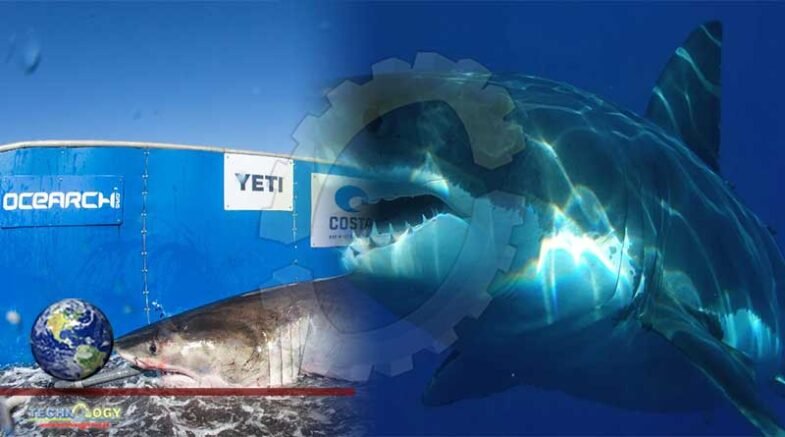OCEARCH, a non-profit helping scientists learn more about the ocean, has launched their 40th white shark research expedition.

OCEARCH, a non-profit helping scientists learn more about the ocean, has launched their 40th white shark research expedition. They are working in the Carolina coast to research North Atlantic white sharks.
Their data shows this region is a hot spot for the sharks during the winter months. Several of the sharks OCEARCH has tagged on previous expeditions currently appear to be in this region.
According to the organization, they hope to tag more animals to add to their study.
They started on March 12th, leaving from Brunswick, Georgia, and plan to end on April 1st in Wilmington.
During the three-week expedition OCEARCH will partner with 42 scientists and 28 institutions to collect data to support several different ocean research projects.
“We’re trying to figure out where our Great White sharks on the east coast and Atlantic Canada are mating, giving birth and their full migratory range and where the females are gestating,” says Chris Fischer, Founder and Expedition Leader of OCEARCH.
Fischer says right now, they have data showing sharks in the north they have studied previously and sharks in the south they are studying now, shows something very different is happening between them. He says they don’t have enough defensible science to draw a conclusion on what might be causing this, but believes it has to do with mating.
“It’s about delivering the team more samples so we can see if that’s consistent which would lead us to conclude that mating is going on here, that’s what the data indicates but its’s too early to say at the moment,” says Fischer.
Due to the weather during the winter months, Fischer says it can be difficult and take some time to get the data needed for a more solid conclusion.
“We’re excited to fill in the gap that exists in our data from the Carolinas region. There’s no doubt this season and place holds important clues to the life history of the white shark in the Northwest Atlantic,” says OCEARCH Chief Scientist Dr. Rebreather.
Originally published at WITN
